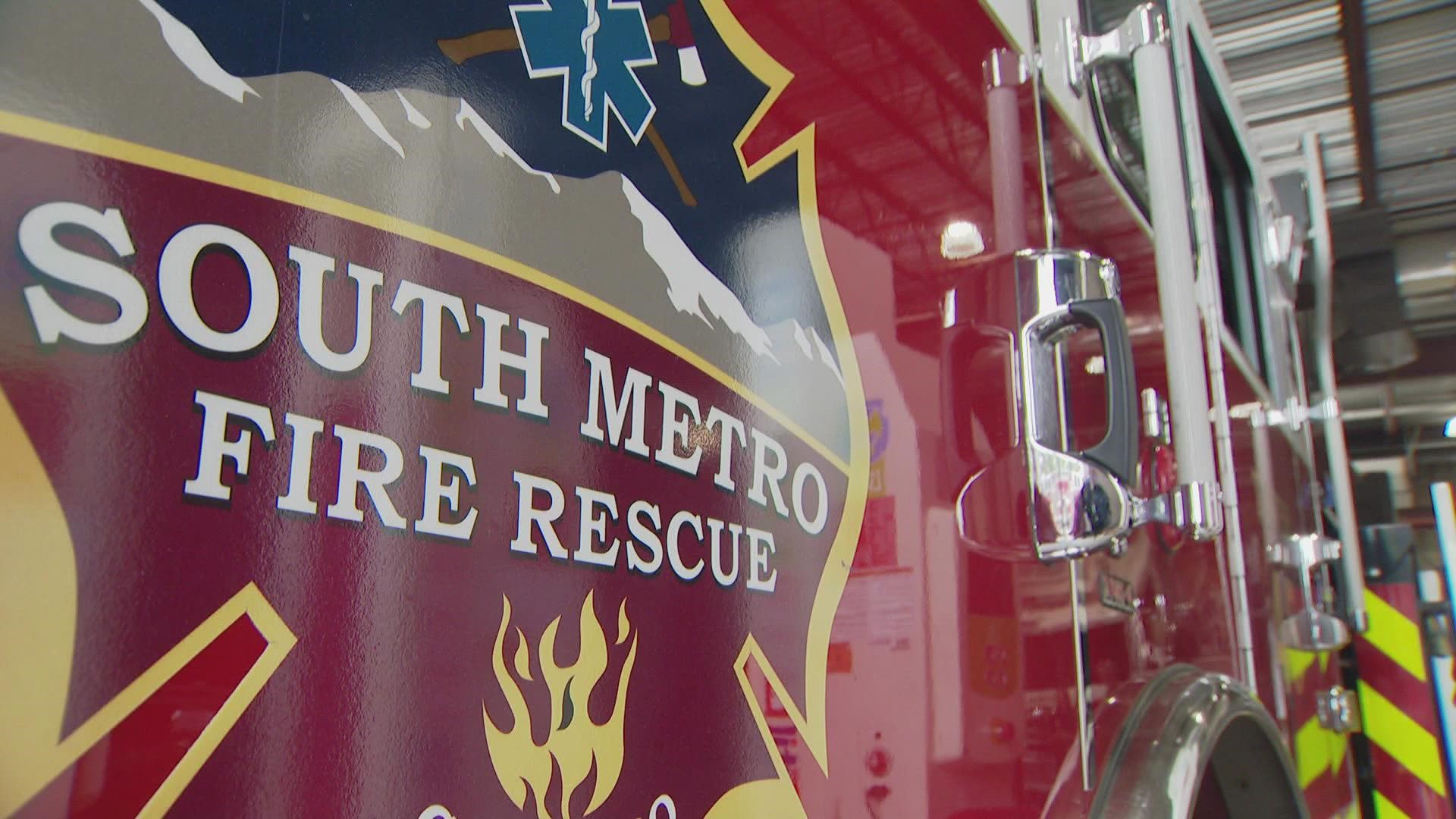COLORADO, USA — Surging gas prices are hurting some of the agencies that we count on more than others.
South Metro Fire Rescue pays almost pump price.
This year, they're expecting to pay nearly $300,000 more on fuel alone.
"Definitely a challenge. We're definitely feeling it as is the rest of the world," said John Frank, South Metro Fire Rescue fleet manager. "Just like any budget that anyone would have in a business or at home, we have to look for things that we have to eliminate or maybe push out."
Frank said that means tabling upgrades or new vehicles they can live without for now and keeping repairs in-house with their own technicians.
“We don’t eliminate things that are safety. We need fuel. We need tires. We need brakes. Some of those wants, maybe the stuff that isn’t mission critical, we kind of put that on the back burner so that we can get through these high fuel prices,” he said. "From a fleet standpoint, for us, fuel is always our highest cost."
He said they don't pay tax on fuel and on top of that, they get a small discount.
"It's not a huge discount, but hey, five cents is five cents," said Frank.
Last month, South Metro Fire Rescue paid $60,000 for fuel. That's double what it cost them in February.
But some public agencies, like RTD, are not affected by the market's volatility.
"We do start looking late summer, early fall to lock in the prices for next year," said Marta Sipeki, interim assistant general manager of communications for RTD. “This is something that we always do. We always lock in the gas prices so there is budget certainty for RTD."
She said this year they're paying $2.30/gallon to fuel up their buses, a deal now unheard of for drivers. Sipeki said RTD will spend approximately $25 million on diesel fuel costs this year, which is about 4% of their operating expenditures. Their annual budget is about $1.16 billion.
"RTD does have some concerns about the 2023 fuel prices since they have effectively doubled over the past year, so we're closely monitoring the market," she said.
If fuel prices were to go up next year for RTD, Sipeki said they'd first choose to cover increased fuel costs by reducing other costs or utilizing reserves that do not affect service, maintenance, or impacts that would directly affect their communities and customers.
“With the higher gas prices, RTD has quite a bit of services out there on our buses and our trains and we would love to have people try out RTD if they haven’t before or if they were past customers to hop on and use RTD services once again," she said.
To take advantage of a locked-in price, agencies need their own fuel tanks, pumps and infrastructure, something South Metro Fire Rescue doesn't have.
"It's something that would be great to do, but you're talking millions of dollars in infrastructure to be able to take advantage of a program like that," said Frank.
Regardless of price, both RTD and South Metro Fire Rescue said they're committed to providing the services they've promised to their communities.
"I don't know if we'll ever see $2 gallon fuel again. Nobody does, right? Crystal ball, I wish I had one," said Frank with a laugh. "I think a lot of folks do."
The City and County of Denver has locked-in prices to fuel up their vehicles, as well. This includes police, fire, and plows. This year they're paying $2.55/gallon for diesel, and $2.38/gallon for gas. In 2021, they purchased more than 2.7 million gallons of fuel. That's less than the 8.8 million gallons of diesel RTD is budgeting for this year.
SUGGESTED VIDEOS: Latest from 9NEWS

